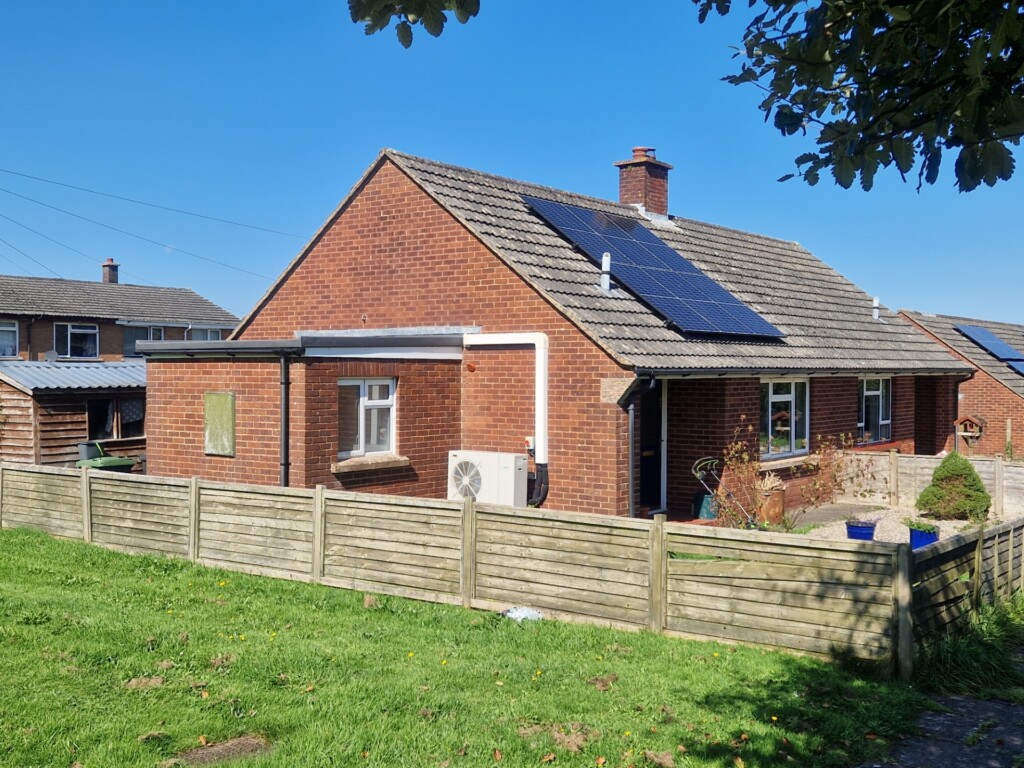
Mixergy Cylinders Help North Devon Homes Cut Costs and Improve Efficiency
Tackling high bills, low scores, and missed solar potential
In off-gas homes heated by electricity, water heating typically uses 2,000 to 3,000 kWh per year, accounting for around a quarter of total household electricity consumption. For North Devon Homes (NDH), a housing provider managing over 3,000 homes, that meant higher running costs for residents and lower EPC ratings across much of the stock.
Determined to take a smarter approach, NDH partnered with National Energy Action (NEA) and Mixergy to pilot a new model: combining solar PV with smart hot water storage. The goal was to reduce resident bills, improve energy performance, and increase solar self-consumption in homes reliant on electric heating.
Recently nominated for the Solar & Storage Live Residential Project of the Year.
Smarter storage, not just generation
While solar PV helps reduce grid demand, without a way to store or shift when that energy is used, much of its potential is lost. NDH addressed this gap by installing Mixergy smart hot water cylinders in 6 properties, all fitted with the Mixergy embedded solar diverter to absorb excess solar generation and heat water when it’s free.
The Mixergy cylinders use a patented top-down heating system. This approach means residents only heat the water they need, reducing standing losses and improving responsiveness. Cylinders were sized between 120 and 250 litres, tailored to household needs. In three of the homes, the cylinders also connected to air-source heat pumps using Mixergy’s externally mounted plate heat exchanger.
The systems were installed between September 2023 and May 2024, with performance monitored through to the end of the year.
Real-world savings
The results showed a clear return for both residents and landlord.
In homes with direct electric heating:
- Hot water energy use ranged from 679 to 1,009kWh over six months.
- Of that, 347 to 400kWh came from solar PV, cutting demand from the grid.
- One household saved £91 over six months, based on a flat electricity rate of 24p/kWh.
In homes using heat pumps with Mixergy:
- Solar-heated water ranged from 390 to 499kWh over the same period.
- One household saved around £60 in just six months.
For a longer-term view, a household with a 4.57kW PV array, air-source heat pump, and Tesla Powerwall 2 battery was monitored over 12 months. In that time:
- 906kWh of hot water was powered by solar.
- The household achieved 80.5% self-consumption of its total PV output.
Measurable EPC improvements
Every home that received a Mixergy cylinder saw an improvement in its EPC score.
- Overall, homes gained between +20 and +46 points thanks to the combined impact of solar PV and smarter storage.
- The Mixergy cylinder itself contributed between +2 and +7 points, verified using Appendix Q methodology under RdSAP 2012.
What residents experienced
Alongside the technical monitoring, NEA conducted in-depth interviews with eight households who had Mixergy cylinders in use.
All eight residents reported having plenty of hot water. Seven out of eight said the Mixergy cylinder was better than their old one.
Where residents used the Mixergy app, satisfaction was particularly high. App users on average gave it:
- 4.6 out of 5 for ease of use
- 4.8 out of 5 for usefulness
Residents used the app to check hot water levels, boost heating, and adjust schedules, empowering them to manage energy more actively. In homes without the app, access to the on-cylinder gauge was seen as essential.
Lessons for housing providers
This project shows that smarter hot water storage isn’t just a technical upgrade, it’s a cost-effective lever for improving resident outcomes and decarbonising housing stock.
By using Mixergy, NDH was able to:
- Lower tenant energy bills, even in hard-to-heat homes
- Achieve verified gains in SAP and EPC performance
- Support grid resilience by reducing daytime electricity use
- Provide residents with greater visibility and control
- Prepare homes for future heat pump integration
Continuing the work
This project demonstrated how smarter hot water storage can deliver measurable benefits for both residents and housing providers, cutting costs, improving EPC ratings, and enabling better use of renewable energy.
At Mixergy, we’ve taken valuable learning from this collaboration, from optimising heating schedules to improving commissioning processes and user engagement. These insights are already helping us shape future installations and product updates to ensure even better outcomes.
We’re grateful to National Energy Action (NEA) for their expert delivery, detailed monitoring, and trusted partnership throughout this project. Together, we’ve shown what’s possible when innovation is applied to the overlooked but essential role of hot water in the energy transition.
Note on savings calculations:
Energy cost savings are based on electricity unit rates used in the NEA evaluation report:
- 24p/kWh for single-rate tariffs
- 12.5p/kWh for Economy 7 off-peak tariffs
These figures reflect average tariff levels under Ofgem’s energy price cap during the monitoring period (2024). Actual savings will vary depending on household demand patterns, tariff type, solar generation, and heating schedule.
Link to the full National Energy Action (NEA) report
Read the full report North Devon Homes project report.

